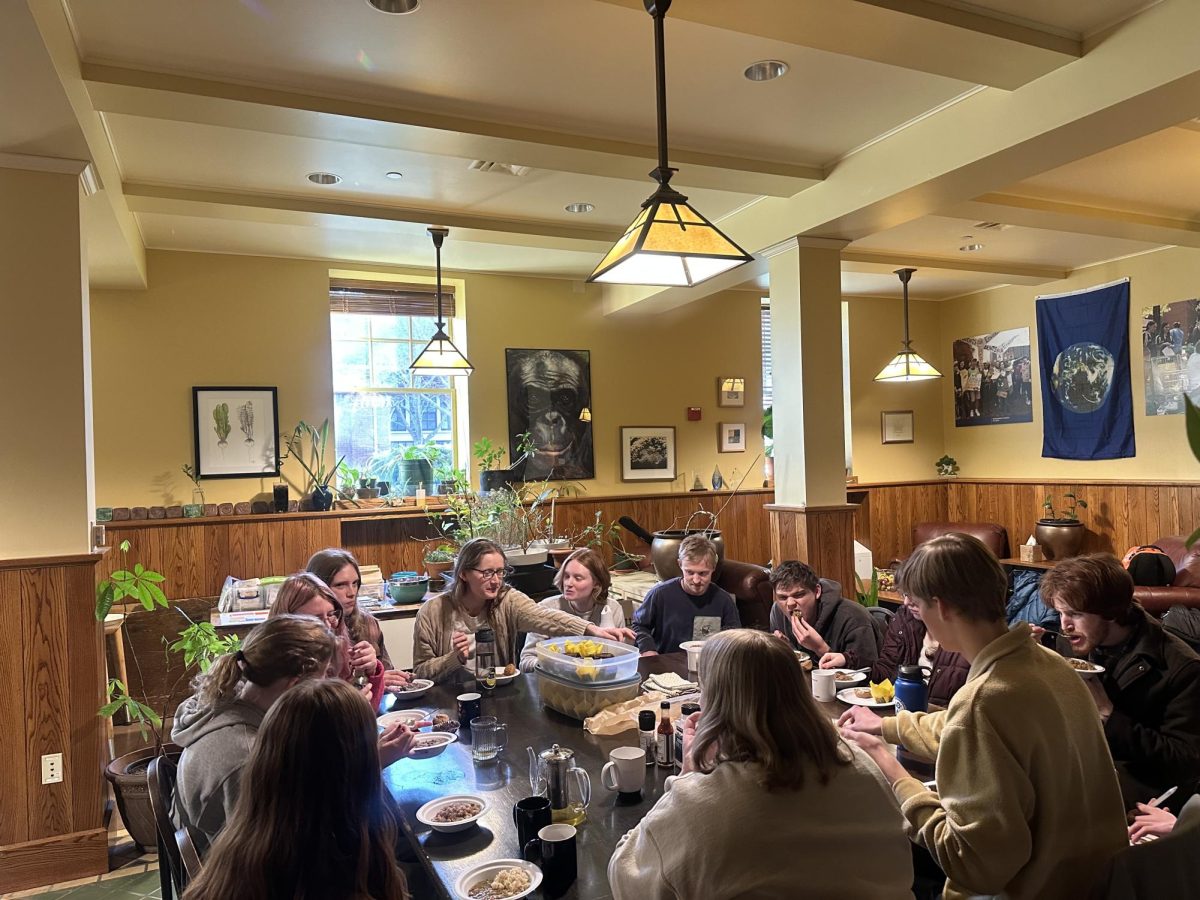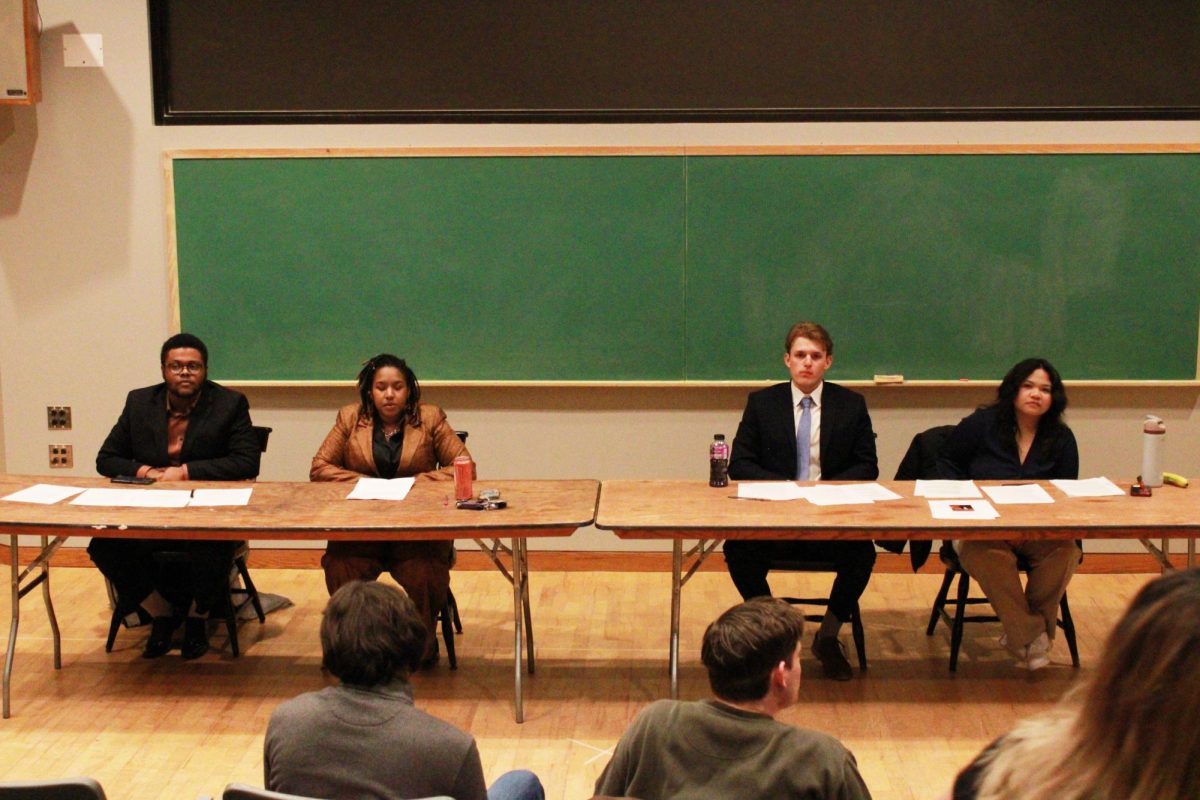WASHINGTON, D.C. — President James H. Mullen presented Senators Lindsey Graham (R-S.C.) and Dianne Feinstein (D-Calif.) with Allegheny College’s second annual Prize for Civility in Public Life last Tuesday during a ceremony at the National Press Club.
“Ladies and gentlemen, I don’t think I deserve this,” Feinstein said, adding that former Pennsylvania governor Tom Ridge persuaded her to accept the award. “I think words matter. I think people are fragile. I think civility has an antithesis, and that antithesis is violence.”
Feinstein’s experiences with political turmoil began in San Francisco in 1978 when an angry supervisor brutally murdered Mayor George Moscone and the nation’s first openly homosexual elected official, Harvey Milk.
“I walked in. I found Harvey’s body. I put my fingers through a bullet hole and I saw a city explode,” said Feinstein. “I saw a riot. I saw two squad cars blowing up. […] And I learned to listen to people. I learned to sit down and spend a lot of time listening. I learned to be very cautious about my words. I learned about — believe it or not, I basically am a centrist — I learned about the political spectrum. I learned what’s right for all of the people of the city, not just this group or that group. And bit by bit, under difficult times, we began to put the bricks of the city together, and began to perform as a city.”
Feinstein furthered her experience as a senator beginning in 1992. At that time, her colleagues invoked cloture, a parliamentary measure used to limit debates on pending legislation, much less frequently than they do in present times.
“I think this contributes to the fragility of the body [of the Senate],” she said. “It’s contributed to a hostility which undermines the effectiveness of both political parties. It has to come to an end.”
Feinstein said that the dire problems facing the country are further complicated by a polarized atmosphere, but she believes she is able to reach solutions with members of opposing parties who are able to be nonpartisan, such as Graham.
“We’ve got an immigration issue. We’ve got a sequestration issue. I sincerely believe Lindsey and I can sit down and work out a solution to them both if we were able to do that,” Feinstein said.
Graham took the podium to applause and complimented his colleague.
“You know, Dianne, I don’t deserve it either. But I don’t deserve most of the crap I get, so I’ll take it,” Graham said as the audience laughed. “[Feinstein] and I represent bookends of the Senate: very classy, and me.”
Civility in the political world is a newsworthy anomaly, according to Graham.
“It makes news when you’re civil in politics, but it’s just assumed everywhere else,” said Graham, “and that has a lot to say about the modern political discourse that we’re in.”
Graham joked that legislation, caught in the dizzying spin of the 24-hour news cycle, quickly becomes distorted and that drafting the Constitution today would be nearly impossible.
“I think Dianne nailed it. Fragile are the times in which we live,” Graham said. “Can you imagine writing the Constitution today? I think this would be a great Saturday Night Live skit. You’d have Philadelphia Hall, Ben Franklin coming out, and Glenn Beck and Rachel Maddow jump on him with a satellite truck.”
The extraordinary influx of money flowing into Washington corrupted politics and poisoned the well, Graham believed, citing his disapproval of Citizens United v. Federal Election Commission, a landmark Supreme Court case that struck down restrictions on indirect campaign contributions. Special interest groups now aggressively target candidates who cross them, making it difficult to craft legislation.
“But I’ve found this,” said Graham. “If you’re not afraid to lose the job, you can do a lot with it.”
“Public life itself is a worthy endeavor,” he added. “Don’t let the politics of the money and all the stuff you see on TV turn you off. I can assure you, if you want see politics from a staff member’s point of view or an elected representative’s point of view, you’d be doing yourself and your country a service. So, go Gators.”
President Mullen stressed that the Center of Political Participation sought to encourage students to become invested in national politics and join the fray in a passionate but civil manner.
“Allegheny seeks to recognize individuals who have stood in the center of the arena of American politics, who have fought passionately from opposite ends of the political spectrum, and have yet honored the process by the civility they have brought to doing the nation’s business,” Mullen said.









